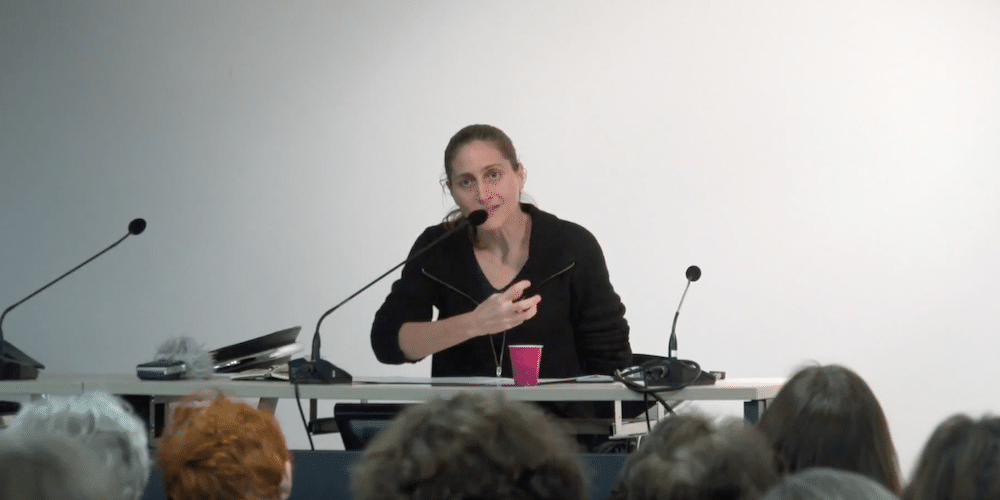In today’s society, what makes the subject disappear, turning him into “other”, “foreign to himself”? Cynthia Fleury analyses the concept of social alienation and its dynamics in Karl Marx before unravelling the mechanics of self-loss in addiction and substance abuse.
https://www.youtube.com/watch?v=fokF67nysL4This lecture in the Seminars at Saint-Anne series was given on 9 January under the title “Social Alienation and its avatars. What philosophy and psychoanalysis have to say”, at the Deniker amphitheatre of the Sainte-Anne hospital in Paris.
Concepts and bibliography
(05:11) – Individual alienation, social alienation. From Hegel to Marx.
If alienation is for Hegel an essential step that characterises the life of the spirit, that moment when the self becomes another, an instrument for reaching the ultimate extent of itself, for Marx on the other hand, and “according to the laws of economy”, objectification is a “loss of the object or enslavement to it”. It is a process of dispossession that he conceptualizes in his Economic and Philosophic Manuscripts of 1844.
Georg Wilhelm Friedrich Hegel, The Phenomenology of Spirit. Paris, Gallimard 1993. (first published in 1807)
or https://editions.flammarion.com/Catalogue/gf/philosophie/phenomenologie-de-lesprit
Hegel, Georg Wilhelm Friedrich. Morceaux Choisis (Selected Works). Paris, Gallimard, 1939.
Marx, Karl. Economic and Philosophic Manuscripts of 1844, VRIN, 2007. or https://editions.flammarion.com/Catalogue/gf/philosophie/manuscrits-de-1844
Simmel, Georg. The Philosophy of Money. PUF, 2014. (first published in 1900).
(40’09) Three other definitions of alienation
Richard Sobel, “Exploitation, aliénation et émancipation : Marx et l’expérience moderne du travail”, Savoirs et clinique, vol. 19, no. 2, 2015.
Franck Fischbach. “Activité, Passivité, Aliénation. Une lecture des Manuscrits de 1844”, Actuel Marx, vol. 39, no. 1, 2006.
Stéphane Haber, “Que faut-il reprocher aux Manuscrits de 1844 ?”, Actuel Marx, vol. 39, no. 1, 2006.
Theodor Adorno, Minima Moralia, Petite bibliothèque Payot, 2016.
(01:03:25) Addiction and doping, contemporary forms of social alienation
Cynthia Fleury, Les pathologies de la démocratie, Le livre de poche, 2009.
Valleur, Marc, et Elizabeth Rossé, “Le virtuel et ses avatars“, Enfances & Psy, vol. 55, no. 2.
Isabelle Queval, S’accomplir ou se dépasser. Essai sur le sport contemporain, Éditions Gallimard, collection « Bibliothèque des sciences humaines », 2004.
Isabelle Sorente, Addiction générale, JC Lattès, 2011.
Paul Yonnet, Systèmes des sports, Paris, Gallimard, 1998.
To learn more
Le cours de Cynthia Fleury sur les destins actuels de la rationalité instrumentale.
Richard Sennett, Le travail sans qualité, Albin Michel, 2000.
Yves Clot, Le travail à cœur, Pour en finir avec les risques psychosociaux, La Découverte, 2010.
Lochak, Perte d’emploi, perte de soi, Toulouse, Eres, 2004.
Paugam, La Disqualification sociale, Paris, PUF, 1991 ; Le Salarié de la précarité, Paris, PUF, 1999.
J.-P. Durand, La Chaîne invisible, Paris, Seuil, 2003.
Beaud et M. Pialoux, Retour sur la classe ouvrière, Paris, Fayard, 1999.
Christophe Dejours, Travail vivant, Tome 2, Travail et émancipation, Petite bibliothèque Payot, 2013.
Ch. Dejours, Souffrance en France, Paris, Seuil, 2000.
Axel Honneth, La société du mépris, Vers une nouvelle théorie critique, 2008

